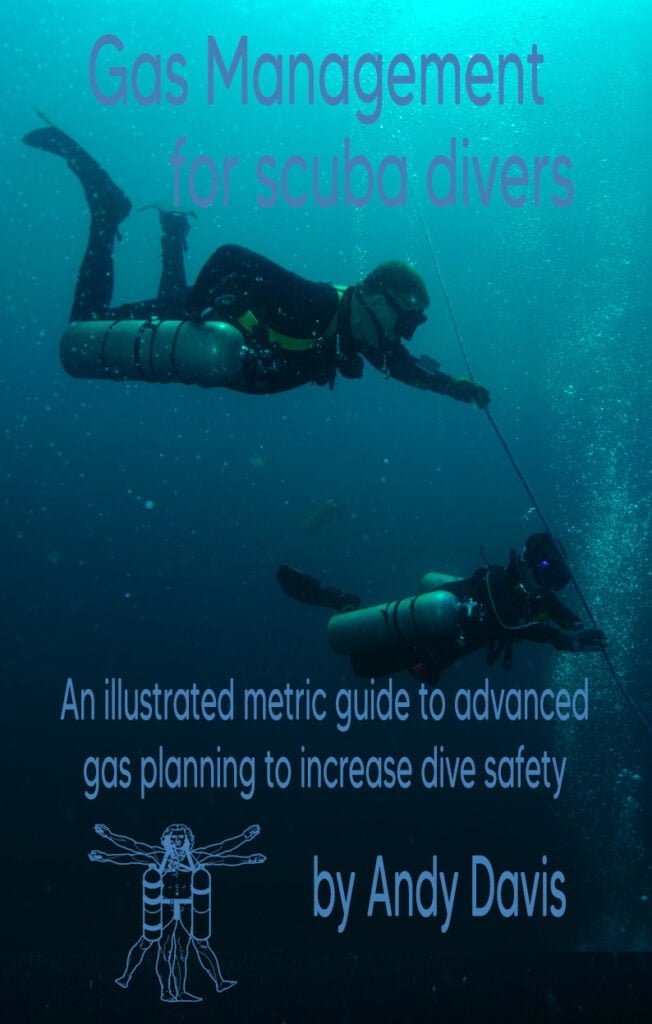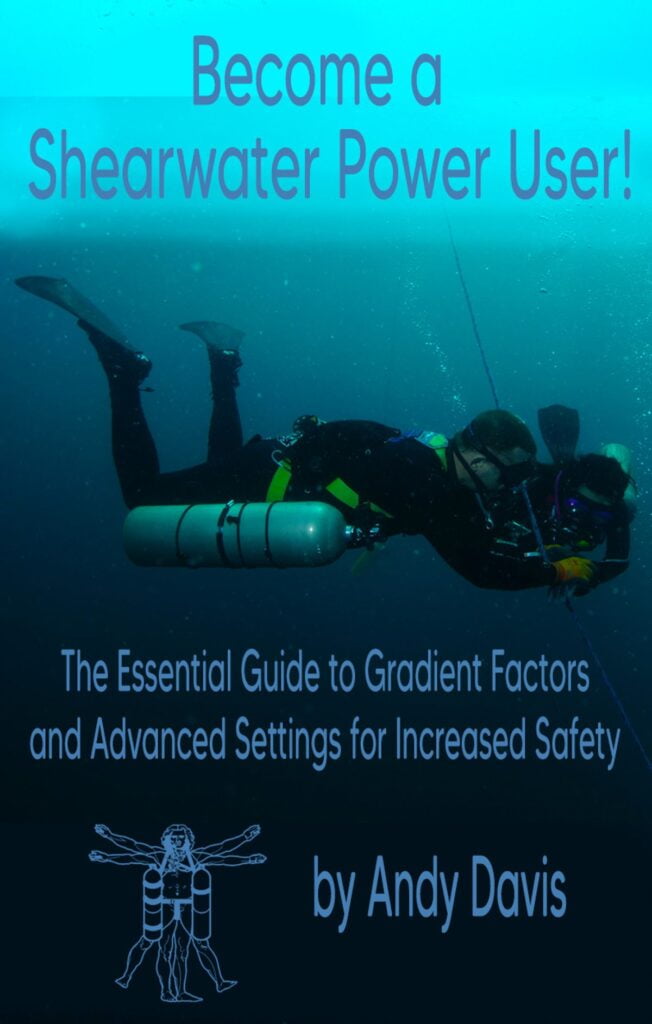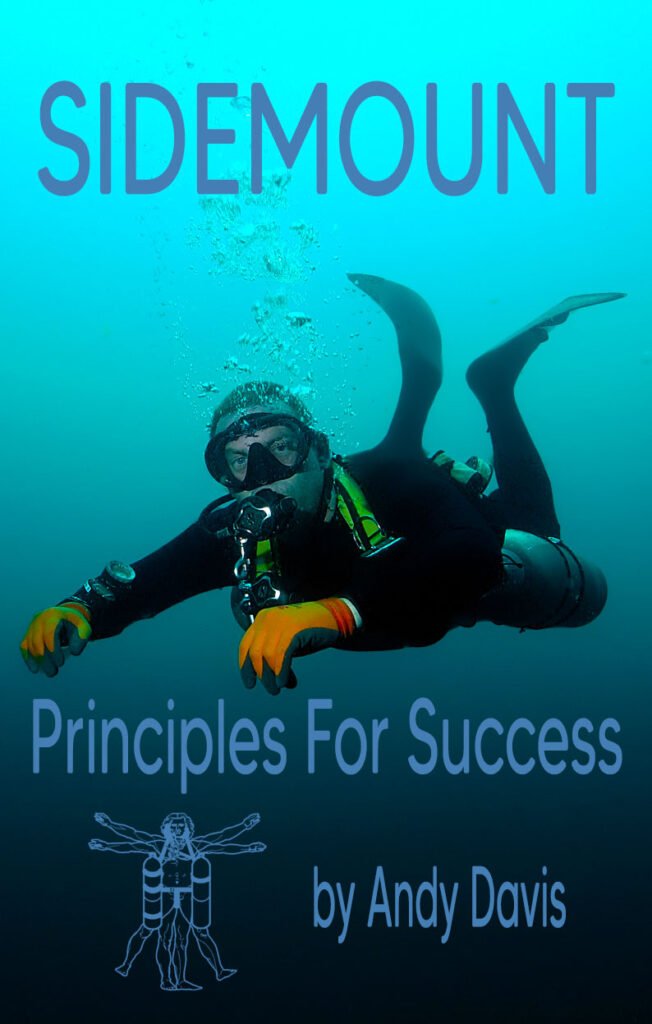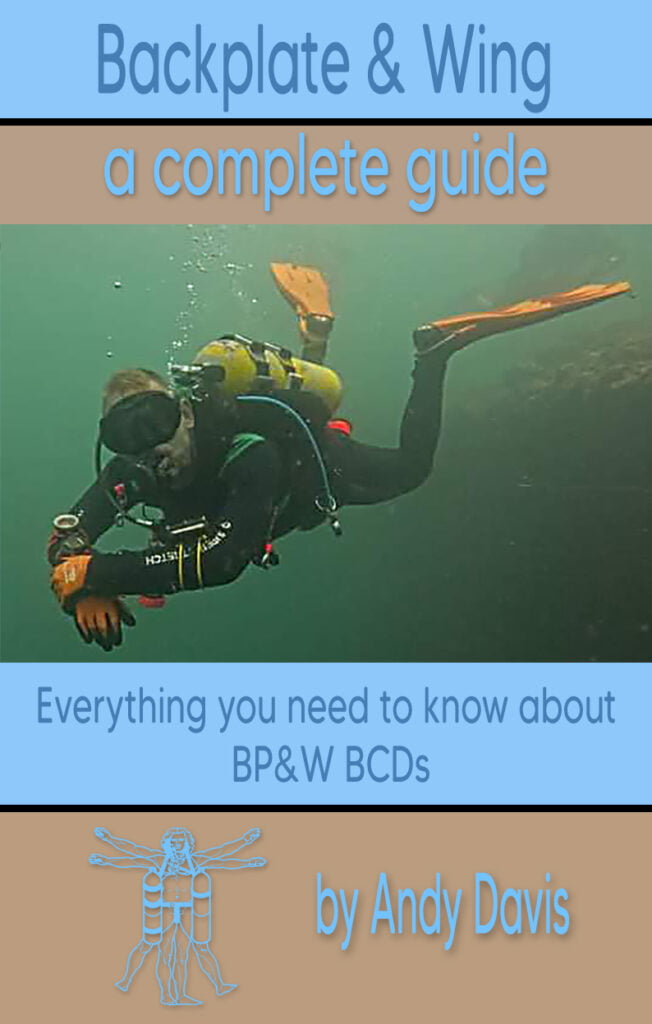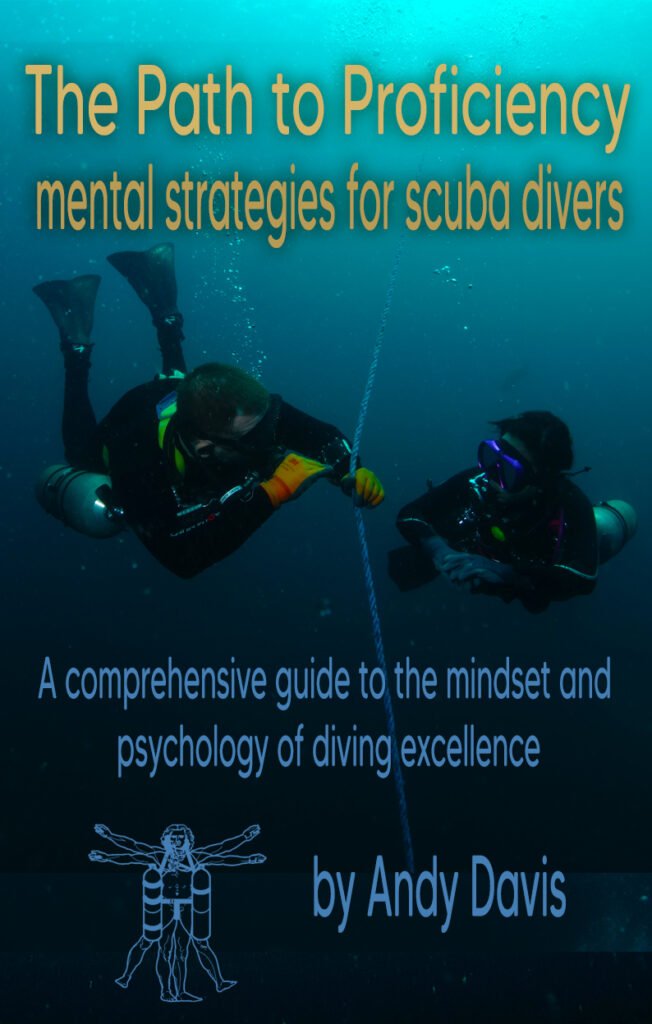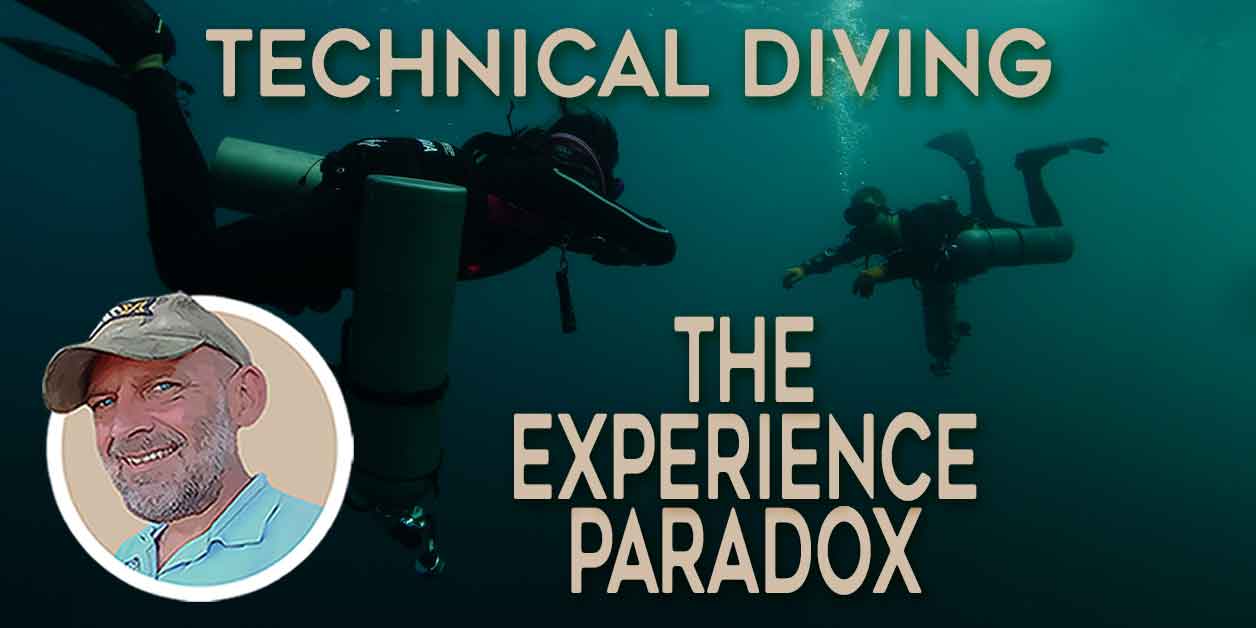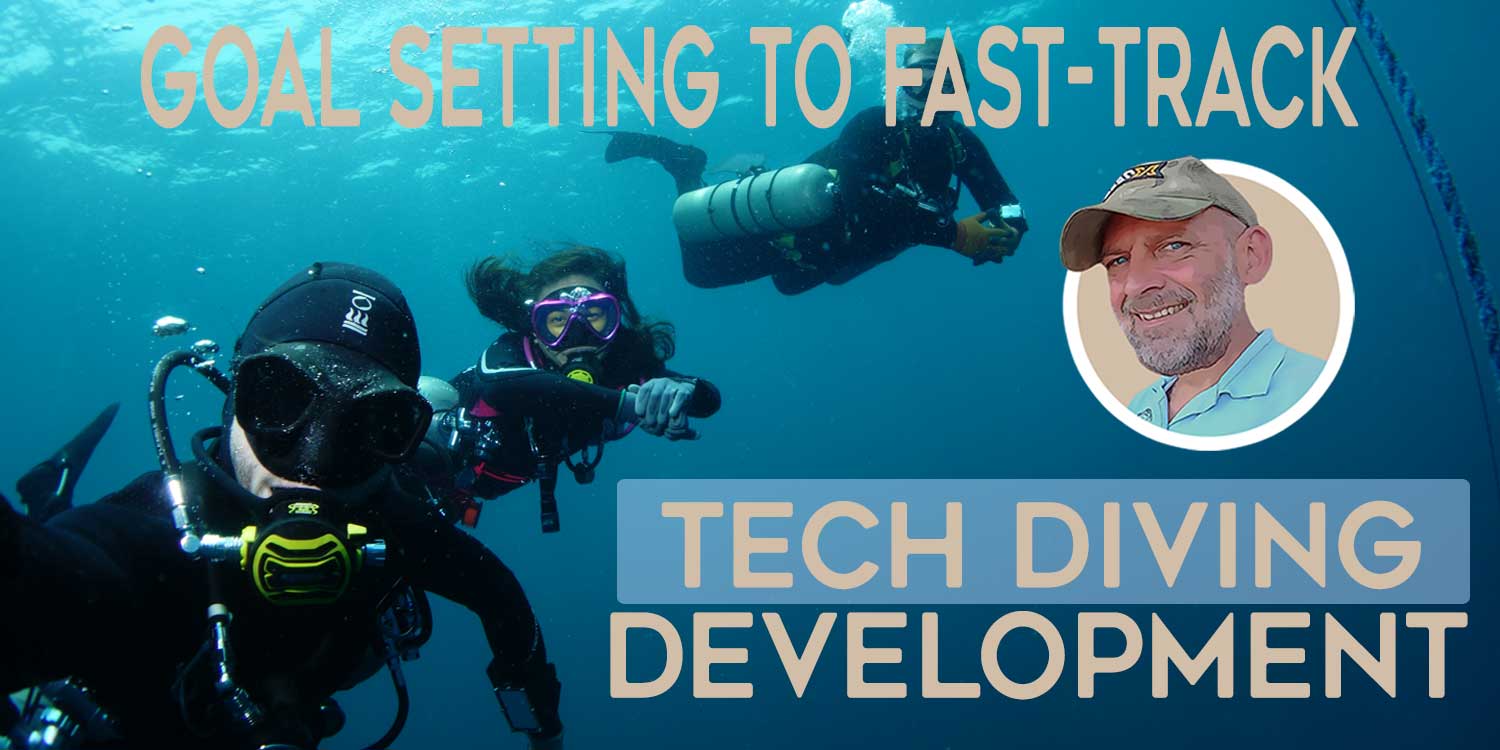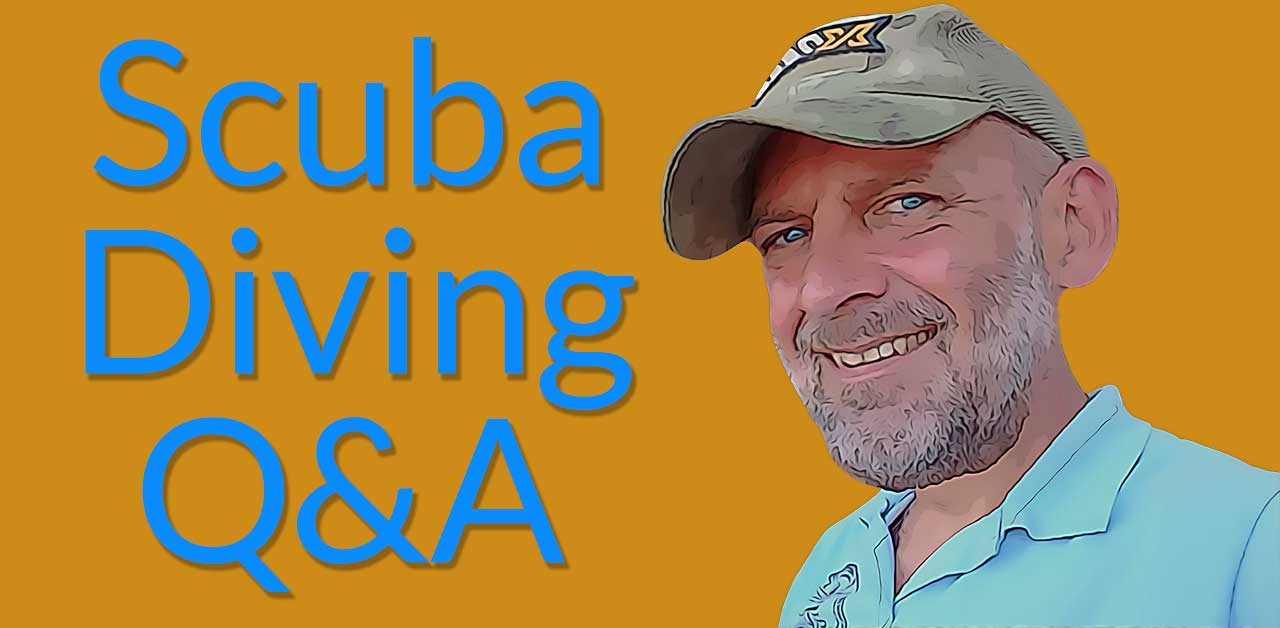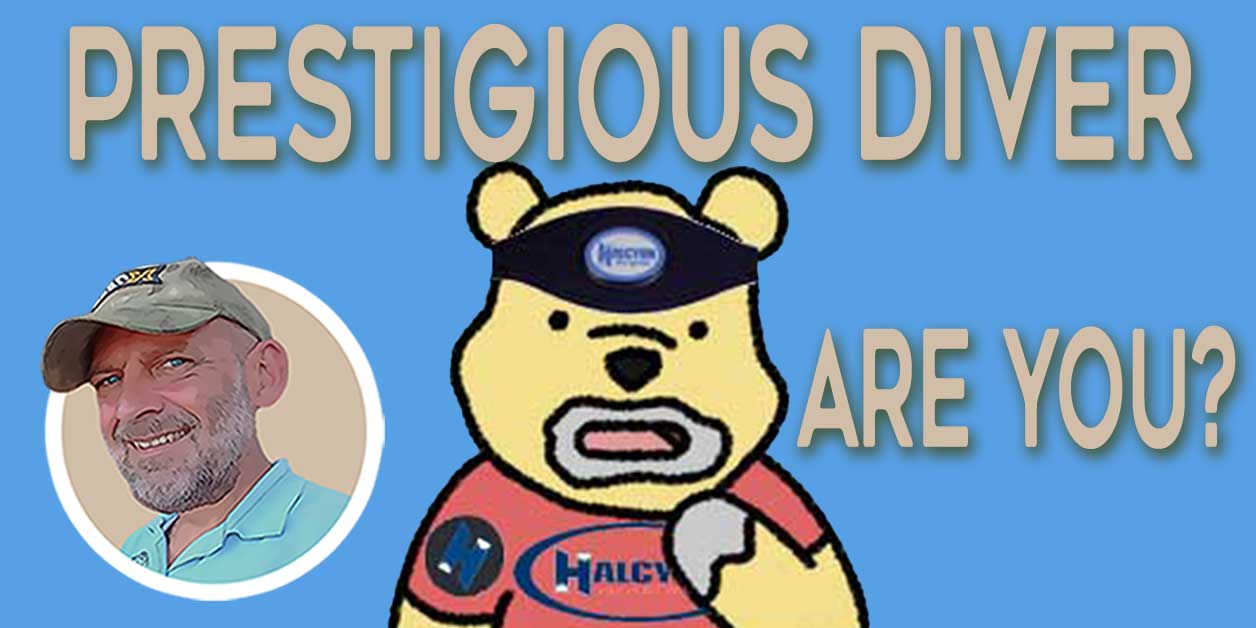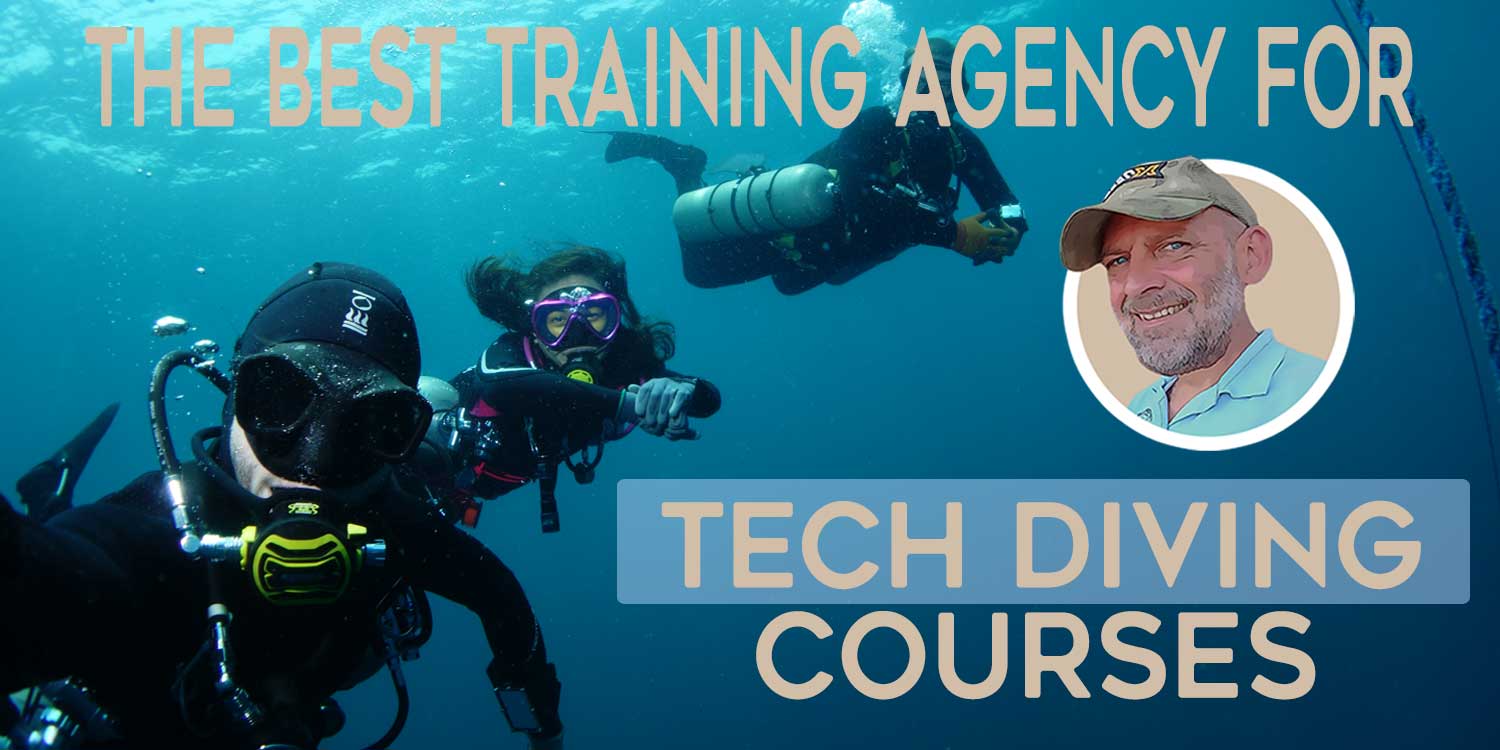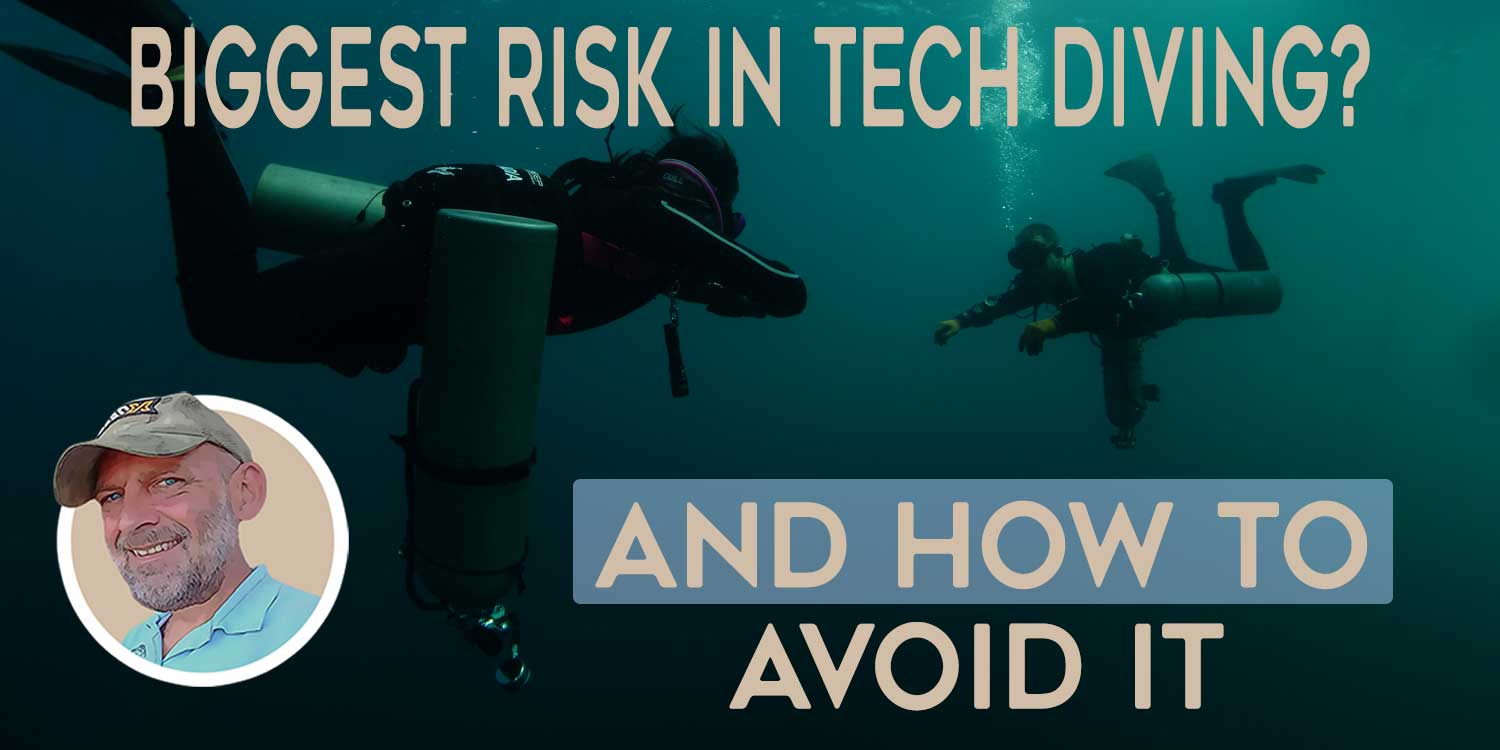Technical Diving: Differing Perceptions of Toxic Culture, Elitism and Clique Mentality
Technical diving, often perceived as the pinnacle of underwater exploration, is not without its controversies. In this article, I will explore the varying perceptions of a toxic culture, elitism, and clique mentality that sometimes plague this otherwise thrilling pursuit.
Toxic Tech Divers Do Exist
Firstly, some technical divers succumb to ego, superiority complex, arrogance, elitism, and/or prestige association.
However, this is actually rare in legitimately highly experienced, very competent divers.
Egotism is actually more readily associated with inexperience, incompetence and psychologically compensating for suppressed insecurities.
Put simply, they make themselves feel more positive by perceiving others negatively.
That’s an unconscious ego defense, which is not apparent to the individual. It takes a lot of hard psychological insightfulness to overcome ego defenses.
The reality is that acquiring extensive meaningful experience and progression to high levels of competency necessitates a process of embracing your own fallibility. It literally demands overcoming the self-protecting directives of one’s ego. That, in turn, relies upon the capacity for honest self-awareness.
Those lacking in self-awareness and self-honesty cannot develop into exceptional tech divers.
Why Some Tech Divers Fall Into Clique Mentality
Elitism and toxic behaviors are often linked to clique mentality. Several factors can lead technical divers into a clique mentality:
- Sense of belonging: Cliques often provide a feeling of inclusion and acceptance, offering individuals a sense of belonging to a tight-knit group.
- Exclusivity: The exclusivity of cliques, with selective membership and perceived status, can appeal to individuals seeking validation or social recognition.
- Identity reinforcement: Membership in a clique can reinforce one’s identity and self-esteem, as individuals align themselves with a group that reflects their values or aspirations.
- Protection from outsiders: Cliques may provide a sense of security or protection from perceived threats or criticism from outsiders, fostering a sense of unity and solidarity among members.
- Power dynamics: Cliques often involve hierarchies and power structures, where certain members may hold influence or control over others, attracting individuals seeking to align themselves with those in positions of authority.
- Fear of exclusion: The fear of being excluded or ostracized from social groups can drive individuals to seek membership in cliques, as they strive to avoid feelings of loneliness or isolation.
Diving Elitism Versus Striving For Excellence
Elitism and striving for excellence differ in their underlying principles, motivations, and implications:
Elitism:
- Exclusivity: Elitism often involves the belief in superiority or exclusivity, where certain individuals or groups are considered superior to others based on arbitrary criteria such as social status, wealth, or pedigree.
- Hierarchical mindset: Elitism tends to perpetuate hierarchical structures, where those at the top maintain power and privilege while excluding or marginalizing others perceived as inferior.
- Closed-mindedness: Elitism may lead to closed-mindedness and resistance to new ideas or perspectives, as individuals or groups seek to maintain their status and control.
- Focus on status symbols: Elitism often places emphasis on external markers of prestige or status, such as expensive equipment, exclusive memberships, or affiliations with high-profile individuals or organizations.
Striving for Excellence:
- Inclusivity: Striving for excellence is inclusive, welcoming individuals from diverse backgrounds and experiences who share a common goal of personal and collective improvement.
- Growth mindset: Excellence fosters a growth mindset, encouraging continuous learning, skill development, and innovation to achieve higher standards and goals.
- Collaboration and support: Striving for excellence promotes collaboration, support, and mutual respect among individuals, recognizing that collective success is built on the strengths and contributions of all members.
- Focus on personal development: Excellence focuses on personal development and self-improvement, emphasizing intrinsic motivation, passion, and dedication to mastering skills and achieving goals.
In summary, while elitism emphasizes exclusivity, hierarchy, and status symbols, striving for excellence prioritizes inclusivity, growth, collaboration, and personal development.
The Need For Peer Critique
Secondly, as an alternative perspective, tech diving evolved through processes of diligent and constructive peer critique.
Additionally, as a community, technical diver safety is promoted through that same process of honest constructive criticism and the advice that results from it. The uncomfortable truth will be told when it is needed.
Peer critique is indispensable in technical diving as it serves multiple crucial purposes:
- Safety enhancement through risk identification and mitigation
- Skill improvement through constructive feedback
- Error prevention by detecting and rectifying mistakes
- Knowledge sharing among divers
- Accountability for individual actions
- Continuous learning and development
Additionally, peer critique facilitates knowledge sharing, fosters accountability among divers, promotes continuous learning, and strengthens community bonds within the diving fraternity.
Peer Critique When Striving For Excellence In Diving
- Involves constructive feedback and evaluation from fellow divers with similar levels of expertise
- Facilitates a culture of continuous improvement and skill refinement within the diving community
- Encourages open and honest communication to identify areas for growth and development
- Provides valuable insights and perspectives that may not be apparent to the individual diver
- Helps divers identify strengths and weaknesses in their diving techniques and decision-making processes
- Promotes accountability and responsibility for maintaining high standards of performance and safety
- Fosters a supportive environment where divers can learn from each other’s experiences and expertise
- Contributes to the overall advancement and professionalism of technical diving practices through collaborative learning and knowledge sharing.
The Education of Tech Diving Mindset
Those realities tend to be poorly educated to an increasing amount of new tech divers as the pursuit increasingly transitions into a mainstream diving activity.
Tech instructors are increasingly fast-track certified whilst still very much possessing a ‘recreational diving mentality’. That, in turn, passes to their students. The technical diver ethos and mindset, along with established tech community practices are not instilled during training.
Recreational diving, where dives remain relatively risk inconsequential, does not support the necessity for honest peer critique and judgment-based advice. In contrast, technical diving demands it.
10 Essential Attributes Of Technical Diving Mindset
- Embraces a commitment to excellence and mastery in diving skills and knowledge
- Emphasizes the importance of thorough preparation and planning for complex dives
- Instills a strong focus on safety, meticulous planning, risk management, and situational awareness
- Promotes humility and the realistic appraisal of competency
- Encourages a self-disciplined approach to training and skill development
- Promotes a mindset of continuous learning and improvement
- Highlights the need for adaptability and flexibility
- Cultivates mental resilience when handling stressful situations
- Fosters a sense of camaraderie and mutual support within the diving community
- Fosters a sense of responsibility and accountability for personal actions and the safety of dive partners
The Tech Diving Community: Inclusivity Versus Exclusivity
Technical diving is a very inclusive community, not exclusive. However, inclusivity is dependent upon individuals meeting certain achievable expectations. Anyone can meet those expectations, with the investment of time, effort, motivation, and money, however, some feel entitled to inclusion without doing so.
When that sense of self-entitlement is rejected, it’s comforting to adopt a victim mentality – i.e. “This person is acting exclusively and I’m being unfairly excluded“.
An inclusive technical diving community:
- Establishes clear and transparent criteria for acceptance
- Ensures that these criteria are objective and accessible to all
- Provides support and resources to help divers meet the entry requirements
- Maintains an open and welcoming atmosphere where everyone feels valued and respected
- Encourages collaboration and participation among members, regardless of their background or status
- Strives to continuously improve and evolve its standards to better reflect the needs and values of the diving community.
An exclusive technical diving community:
- Limits membership based on irrelevant criteria
- May prioritize certain individuals or groups over others
- Maintains arbitrary barriers or restrictions that hinder inclusion
- Tends to be insular or cliquish, excluding outsiders or newcomers
- Often promotes a sense of elitism or superiority among members
Emotional Control To Feedback
Some divers simply have negative emotional reactions to constructive critique or limiting suggestions, no matter how constructive and well-intentioned.
Low emotional control, coupled with being high on the Dunning-Kruger peak, will result in an exceptionally negative and counter-productive perspective.
A good response to peer feedback involves staying open-minded, remaining calm, and refraining from becoming defensive or overly reactive when faced with criticism or suggestions for improvement.
Emotional intelligence in this context also entails the capacity to understand and process the feedback in a positive manner, separating personal feelings from the objective assessment, and using the critique as an opportunity for growth and learning.
Emotional Intelligence When Giving Peer Critique
It’s also important to recognize that not every diving peer may be eloquent or tactful when giving well-intentioned and beneficial critiques or advice. Doing so is a learned social skill and a factor of emotional intelligence.
Using emotional intelligence when giving critique and performance feedback encompasses being aware of the recipient’s emotions and responding with sensitivity and respect.
Tips For Giving Technical Diving Peer Critique
- First, ask if the person wants critique or feedback
- Choose the right time and place to deliver the critique
- Frame the critique in a positive and supportive way
- Offer specific suggestions for improvement
Additionally, emotional intelligence in giving critique involves actively listening to the recipient’s response, being open to dialogue, and adapting communication style as needed to ensure the feedback is received positively and leads to growth and development.
Avoid Hostile Attribution Bias
For that reason, try to avoid ‘Hostile Attribution Bias‘ a common cognitive bias that predisposes people to “the tendency to interpret others’ behaviors as having hostile intent, even when the behavior is ambiguous or benign”.
Hostile attribution bias is a psychological tendency where individuals interpret ambiguous social cues as intentionally hostile or threatening, even when there’s no evidence supporting such an interpretation.
Again, as mentioned, striving towards high self-awareness and self-honesty is the tonic to overcome these, quite typical, human limitations to development.
Understanding Ego and Elitism In Tech Diving
The presence of toxic traits among some divers serves as a reminder of the importance of self-awareness and humility in the pursuit of excellence. By embracing our fallibility and fostering a culture of honest peer critique, we pave the way for growth and safety within the community.
- Toxicity exists in some technical diving circles, often linked to ego, superiority, and prestige.
- Egotism is more common among inexperienced divers compensating for insecurities by negatively perceiving others.
- Overcoming ego defenses requires honest self-awareness crucial for developing into exceptional tech divers.
- Peer critique is essential in tech diving for safety and growth, fostering a culture of constructive criticism.
- Lack of education on the technical diving mindset among new divers poses challenges as the activity becomes mainstream.
- Inclusivity in technical diving hinges on meeting expectations, with entitlement hindering true belonging.
- Emotional control is crucial when receiving feedback, as negative reactions can impede progress.
- Emotional intelligence is necessary when giving critique, as not all peers may possess tactfulness.
- Avoiding hostile attribution bias is vital to prevent misinterpreting benign behavior as hostile.
- Striving for high self-awareness and honesty is key to overcoming human limitations in development.
By embracing the value of peer critique and constructive feedback, divers can navigate the waters of technical diving with confidence and camaraderie. As the sport continues to evolve, technical diving instructors must instill the proper mindset and ethos, ensuring that all who venture into the depths do so with a shared commitment to safety and respect.
About The Author

Andy Davis is a RAID, PADI TecRec, ANDI, BSAC, and SSI-qualified independent technical diving instructor who specializes in teaching sidemount, trimix, and advanced wreck diving courses.
Currently residing in Subic Bay, Philippines; he has amassed more than 10,000 open-circuit and CCR dives over three decades of challenging diving across the globe.
Andy has published numerous diving magazine articles and designed advanced certification courses for several dive training agencies, He regularly tests and reviews new dive gear for scuba equipment manufacturers. Andy is currently writing a series of advanced diving books and creating a range of tech diving clothing and accessories.
Prior to becoming a professional technical diving educator in 2006, Andy was a commissioned officer in the Royal Air Force and has served in Iraq, Afghanistan, Belize, and Cyprus.
In 2023, Andy was named in the “Who’s Who of Sidemount” list by GUE InDepth Magazine.
Purchase my exclusive diving ebooks!
Originally posted 2024-02-24 17:04:46.


